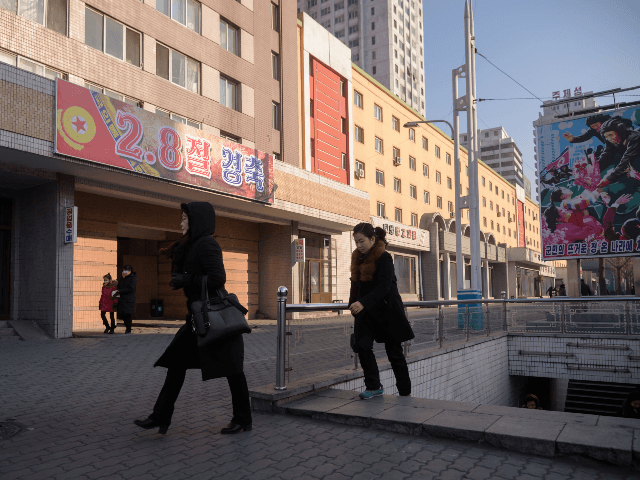North Korea still officially claims it has zero cases of coronavirus infection, but one of its officials told Radio Free Asia (RFA) on Saturday that 1,300 people suspected of carrying the virus have been quarantined at a hotel in Pyongyang.
The facility, named the “4.25 Hotel” in honor of the April 25, 1932, founding of the Korean People’s Revolutionary Army, has a maximum capacity of about 20,000 guests. It was not clear from the official’s comments if the entire hotel has been repurposed as a quarantine facility or only one of its wings. The source said close to 2,000 patients were originally isolated in the hotel but about 500 of them have been “discharged because their symptoms have eased.”
RFA cited disturbing reports from its sources that the North Korean leadership has essentially thrown most of their population to the wolves and is focused on keeping the coronavirus away from the leadership in Pyongyang.
“The authorities declared the new coronavirus quarantine as a matter of national survival, so they are focusing their efforts on protecting Pyongyang, where the supreme leadership of the government is located,” as RFA’s source put it.
In the North Korean capital, people who cough and run a fever are whisked away to the quarantine hotel. A hotline has been established for Pyongyang residents to report suspected infections. An emergency quarantine committee is preparing reports twice a day on the number of infected.
Out in the provinces, RFA reported a hospital quietly cremating suspected coronavirus fatalities. Shortages of protective gear and medicine are likely as supplies are shifted to Pyongyang, which nevertheless remains “ill-equipped for a potential epidemic” and already appears to be suffering from a shortage of protective masks.
The BBC reported on Monday that about 380 foreigners have been quarantined in Pyongyang, most of them diplomatic personnel confined to their compounds. An earlier quarantine period was supposed to expire last weekend, but it was extended and broadened to include almost twice as many people. New foreign visitors have been ordered to undergo quarantine for 30 days.
The BBC quoted a North Korean state media report that said about 3,000 people are being monitored for possible coronavirus symptoms in North Pyongan, a province bordering China.
NPR noted that North Korean dictator Kim Jong-un has been disappearing from the public eye for much longer periods of time than usual since the coronavirus epidemic began, and some public events have been canceled, moves which are difficult to square with Pyongyang’s insistence for the record that “not one novel coronavirus patient has emerged.”
A doctor working in South Korea who has visited numerous North Korean hospitals over the years told NPR that his contacts in North Korea are reaching out through back channels to plead for shipments of protective gear.
Other health experts argued that North Korea’s perpetual struggles to deal with tuberculosis and hepatitis do not bode well for its ability to resist the coronavirus, and historically every Chinese disease outbreak spreads into North Korea eventually. They also noted that reporting coronavirus infections while the dictatorship claims there aren’t any would be much more hazardous to one’s health than the virus itself, so news about outbreaks will probably move much more slowly than anywhere else in the world, even repressive China.
Foreign Policy noted that North Korea could not possibly afford to keep its border with China closed for long, and smugglers are most likely violating the travel restrictions currently in place. As FP recalled, China’s swine flu epidemic – the big Chinese plague story before the coronavirus was unleashed – rapidly spread into North Korea and wiped out every single hog in North Pyongan province, the very same area where 3,000 people are now under observation for Wuhan virus infection according to the BBC.

COMMENTS
Please let us know if you're having issues with commenting.